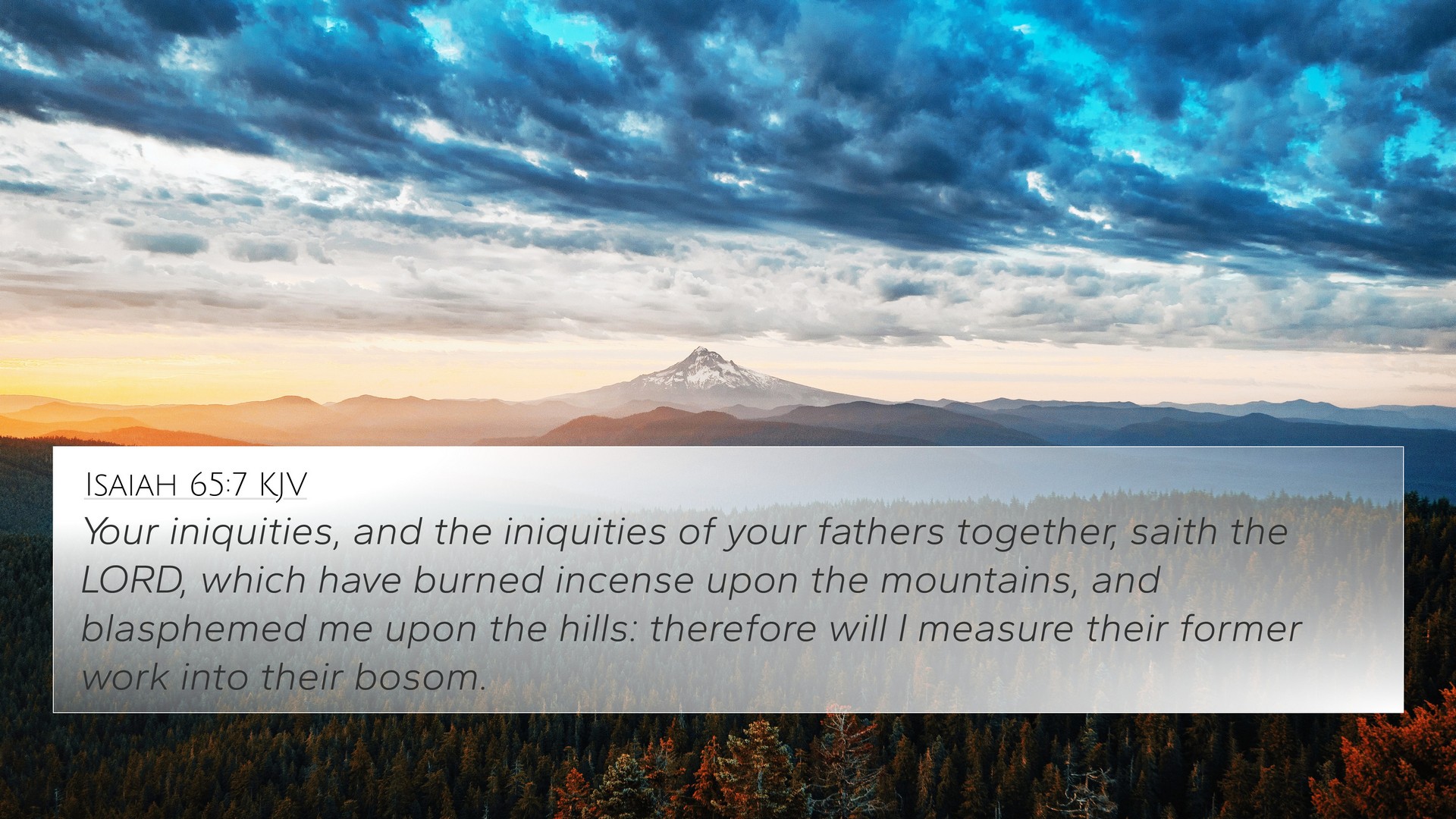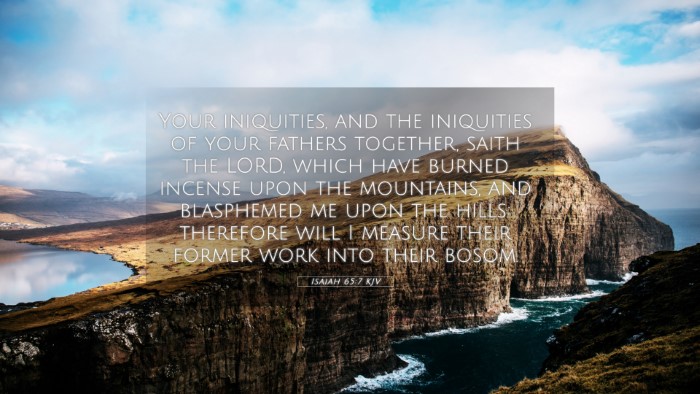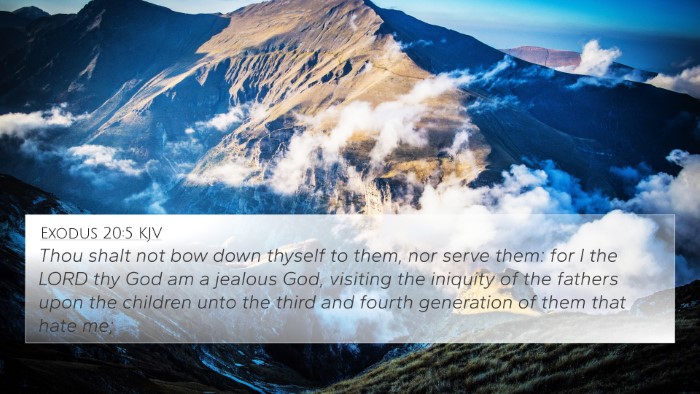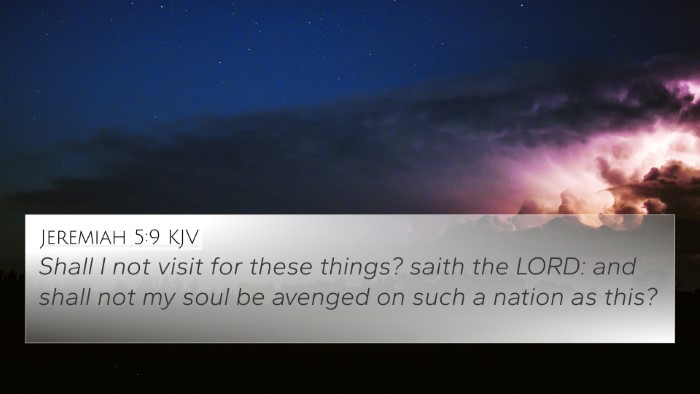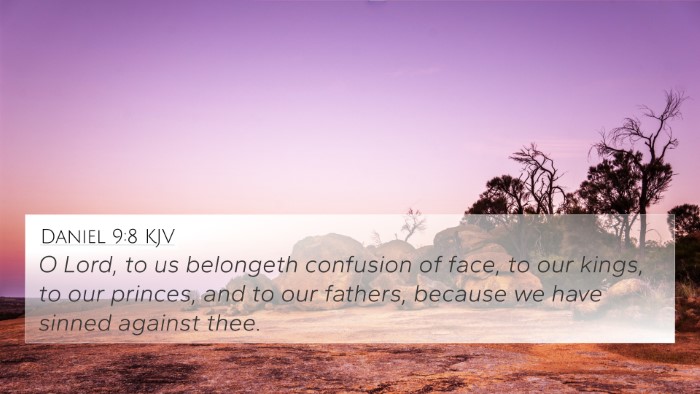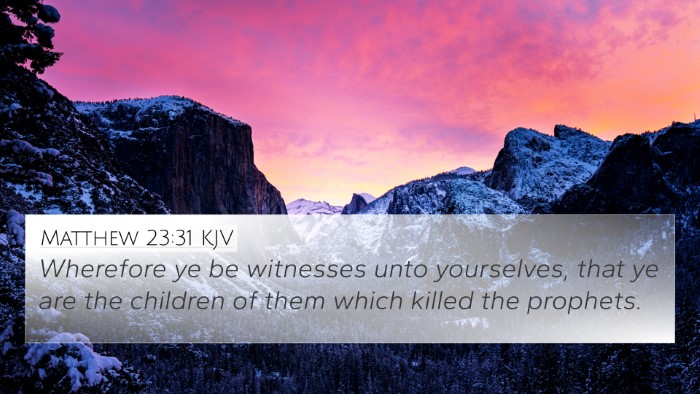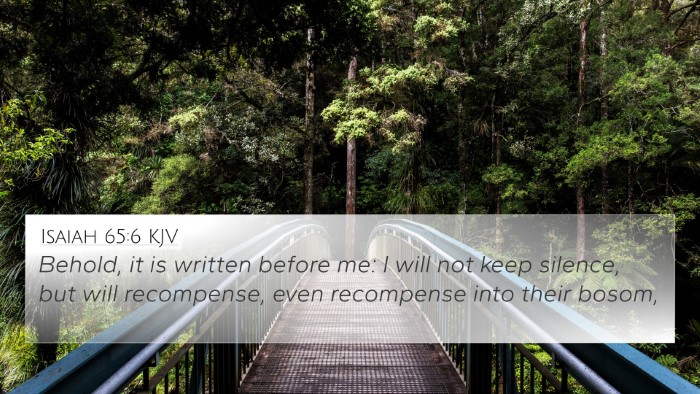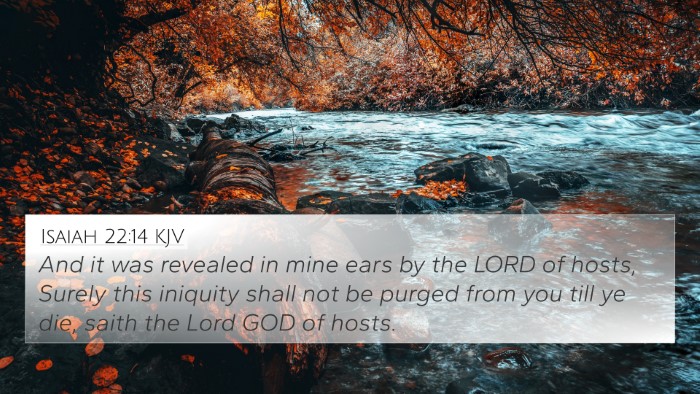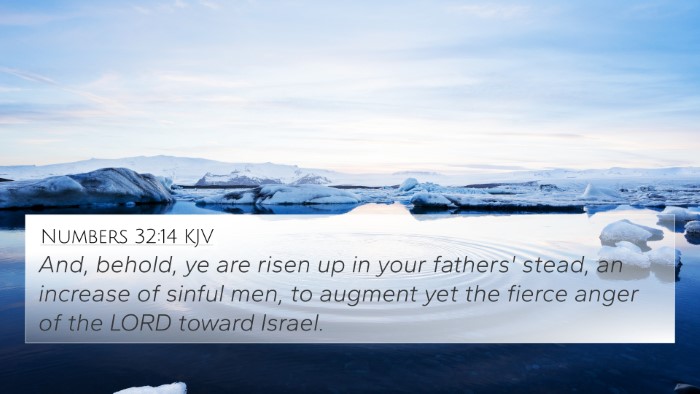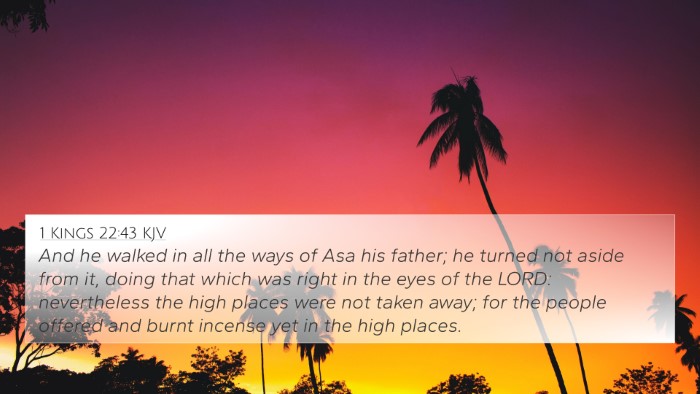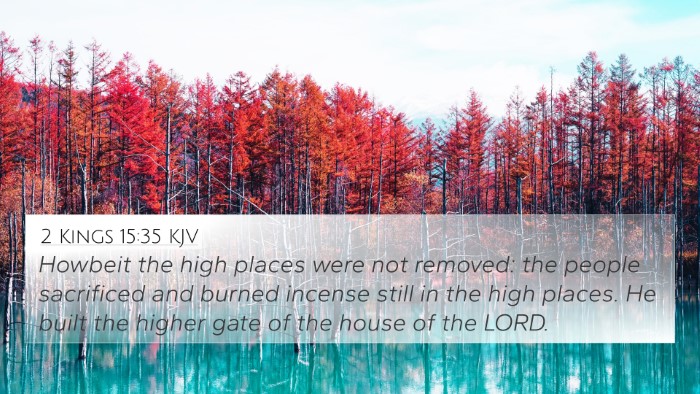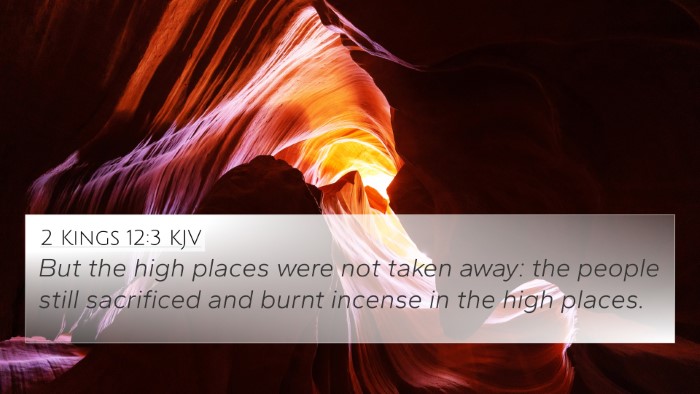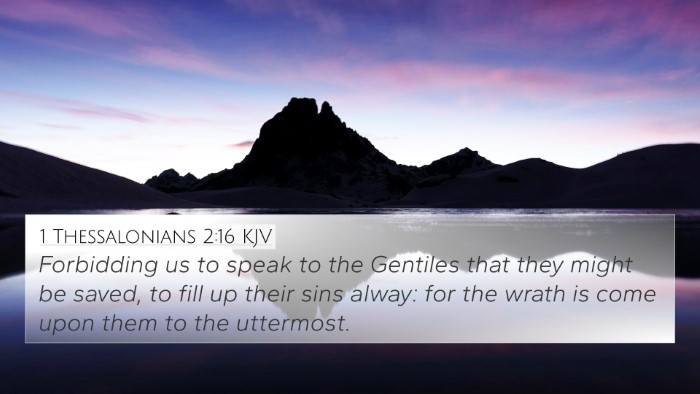Meaning and Interpretation of Isaiah 65:7
Isaiah 65:7 states, "Your iniquities, and the iniquities of your fathers together, saith the LORD, which have burned incense upon the mountains, and blasphemed me upon the hills: therefore will I measure their former work into their bosom." This verse addresses the consequences of sin, calling attention to both individual and collective wrongdoing and the divine judgment that follows.
Overview of Commentary Insights
- Matthew Henry's Commentary: Henry highlights the implication of inherited sin, suggesting that God measures the iniquities of individuals against the weight of their actions and those of their ancestors. He emphasizes God's justice in response to persistent sinfulness.
- Albert Barnes' Notes: Barnes elaborates on the specific sins mentioned—burning incense on the mountains and blaspheming God on the hills. He interprets this as the idolatry of the Israelites and a rebellion against divine authority, reminding readers of the consequences faced by those who stray from God's commandments.
- Adam Clarke's Commentary: Clarke stresses the comprehensive nature of sin, indicating that both personal and communal sins provoke God's anger. He elucidates the significance of the phrase 'measure their former work,’ underscoring that God’s judgment is proportionate to human actions.
Thematic Analysis
This verse prompts a deep reflection on themes of sin and judgment. It reveals the reality that sin affects not just the individual sinner, but also the community and is a recurring theme throughout the Bible.
Related Bible Cross-References:
- Exodus 34:7 - Discusses the visitation of iniquity upon children.
- Numbers 14:18 - Highlights God's slow anger and the enduring consequences of sin through generations.
- Ezekiel 18:30-32 - Urges repentance for personal and inherited sins.
- Romans 2:6-8 - Stresses the principle of reaping what one sows in context to judgement.
- Galatians 6:7 - Discusses the inevitable consequences of one's actions.
- Psalms 130:3 - Acknowledges the weight of sin and the grace of God.
- Jeremiah 5:25 - Reflects on the consequences brought about by iniquities and disobedience.
- Hosea 4:9 - Points to the skewed justice caused by widespread sin.
- Hebrews 10:26-27 - Warns of the judgment for deliberate sins after receiving knowledge of the truth.
- Isaiah 59:2 - Explains how iniquities separate humanity from God.
Connecting to Larger Biblical Themes
Isaiah 65:7 interlinks with larger biblical discussions on the nature of God’s justice, the endurance of consequences for one’s actions, and prioritizes the call for repentance. It fits into a narrative that encourages understanding the depth of human sinfulness while also recognizing the depth of divine mercy.
Applying Cross-Referencing Tools
For those involved in Bible study, utilizing tools for Bible cross-referencing can offer clarity and depth. Engaging in a cross-reference Bible study can help uncover parallel themes across scriptures, developing a more cohesive understanding of how various passages relate.
Utilizing a Bible concordance or a Bible reference guide can enhance this process, helping to identify specific connections between verses like Isaiah 65:7 and others noted above. For instance, finding Bible verses that support specific themes allows students of scripture to engage with the text on a deeper level.
Conclusion
In summary, Isaiah 65:7 serves as a poignant reminder of the consequences of iniquity and the righteousness of God's judgment. By exploring and cross-referencing it with related biblical texts, one can gather more profound insights about divine justice and mercy, ultimately guiding towards repentance and restoration.
